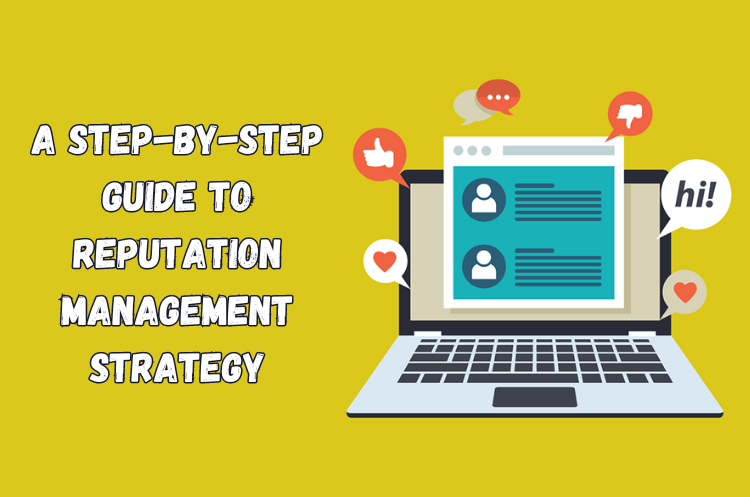
Reputation Management Strategy: A Comprehensive Guide
In today’s digital age, where the voices of customers and critics alike can be amplified across the internet, maintaining a brand’s reputation is more challenging than ever. Negative feedback can spread like wildfire, potentially tarnishing your image. This is where a well-crafted reputation management strategy comes into play.
An effective online reputation management strategy is your shield against unforeseen reputation risks. It empowers you to monitor brand mentions, gauge customer sentiment, and mitigate negative comments. The outcome? A more favorable image for your business.
What exactly is a reputation management strategy?
A reputation management strategy is the systematic management of an individual’s, company’s, or brand’s online presence. It encompasses monitoring conversations, addressing reputation threats, and proactively improving your brand image. It’s not just about responding to online comments; it’s about understanding how your brand is perceived and influencing that perception positively.
While the details of the strategy will follow, it revolves around two fundamental principles:
- Monitoring: Keep a close watch on what customers, influencers, and competitors are saying about your brand.
- Responding: Take proactive steps to shape the public’s perception of your brand.
Now, let’s delve into why having an online reputation management strategy is essential and why you should take it seriously.
The Importance of a Reputation Management Strategy
- Impact on Purchase Decisions: Your brand’s reputation significantly influences purchasing decisions. Even with stellar products and service, a few negative comments can drive potential customers away. Positive reviews, on the other hand, boost trust and can be a game-changer.
- Preserving Trust: Negative comments and ratings erode trust. Customers may start looking elsewhere if they lose faith in your brand. Encouraging positive reviews can help restore trust and loyalty.
- Gaining an Edge: A positive brand image can set you apart from competitors. By understanding your brand’s online reputation, you can capitalize on opportunities to acquire customers from your competitors.
A Step-by-Step Guide to Reputation Management Strategy

To implement a reputation management strategy effectively, you need a well-thought-out plan. Here’s a step-by-step guide to assist you:
Step 1: Monitor Your Brand Reputation
Begin by assessing your current online brand reputation. Keep an eye on your brand’s mentions on various platforms, including app stores, social media, review sites, and eCommerce sites. It’s also crucial to monitor forums, blogs, and news websites, as customers express their views about brands in various places. This knowledge will help you determine where your customers are most active.
Step 2: Analyze Your Competitors
Understanding your competitors’ online reputation is the next step. By analyzing how your competitors handle reviews, comments, and mentions, you can learn from their successes and mistakes. Remember, the goal is to enhance your brand’s reputation, not just compare it to others.
Step 3: Develop an Actionable Plan
Create a plan that outlines who in your team will handle various aspects of reputation management. Consider:
Monitoring feedback and reviews.
Responding to new comments.
Crafting responses to potential issues or inquiries.
Having a clear plan in place ensures that you’re prepared to handle any situation effectively.
Step 4: Monitor and Control Reviews
Implement a system to monitor and manage discussions while responding to reviews. You can utilize review websites, social media platforms, and tools to keep track of customer feedback and brand mentions. To help with this, consider using the services of an online reputation management company, “Build Brand Better.”
Build Brand Better – Your Trusted Reputation Partner
As a leading online reputation management company, we, at Build Brand Better, offer comprehensive solutions to enhance your brand’s reputation. Our services include:
Real-time monitoring of reviews and mentions.
Expert response management.
Integration with popular review websites and social media platforms.
We understand the importance of maintaining a positive online presence and are dedicated to helping your brand succeed. With Build Brand Better, you can proactively manage your reputation and transform critics into loyal supporters.
Step 5: Measure Your Results
After implementing your reputation management strategy, it’s crucial to measure your success. Monitor key metrics, including sentiment analysis, media and industry mentions, and share of voice to gauge your brand’s reputation evolution.
In Conclusion
Improving your brand’s public perception requires a strategic approach. Hoping for the best won’t suffice. You need to actively manage your reputation by understanding what others are saying about your brand and steering the conversation positively. Use the step-by-step guide outlined here to create an effective reputation management strategy and ensure that your team has all the necessary instructions.
Now is the time to take action. Implement these strategies and watch your brand’s reputation soar. Remember, with Build Brand Better by your side, you’re not alone in this journey toward a more positive online presence.
FAQ
Q1: What is online reputation management (ORM)?
A1: Online Reputation Management (ORM) is the practice of monitoring and influencing how your brand or individual identity is perceived online. It involves strategies to build, maintain, and improve your online reputation, which can have a significant impact on your business or personal Image.
Q2: Why is repuation management important?
A2: Reputation management is crucial because your online reputation can influence customer trust, purchasing decisions, and your brand’s competitive edge. Positive online reviews and comments can boost your credibility, while negative ones can harm your reputation.
Q3: What are the key components of a reputation management strategy?
A3: A reputation management strategy typically includes monitoring brand mentions, analyzing competitor reputations, developing an action plan, monitoring and responding to reviews and mentions, and measuring results to gauge your brand’s reputation evolution.
Q4: How can I monitor my brand’s reputation online?
A4: To monitor your brand’s reputation, you can use various tools and platforms to track brand mentions on social media, review sites, news websites, forums, and more. This helps you understand where your customers are most active and what they’re saying about your brand.
Q5: How can I respond to negative comments and reviews effectively?
A5: When responding to negative comments or reviews, it’s essential to remain calm and professional. Acknowledge the issue, express empathy, and offer a solution or explanation. Avoid getting defensive or engaging in confrontations. Aim to resolve the issue and show that you value customer feedback.
For more Blogs:- www.buildbrandbetter.io/blog/
